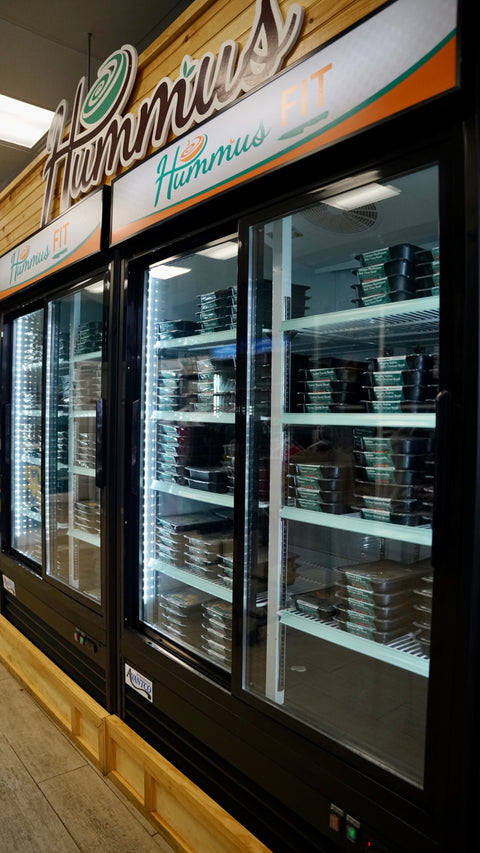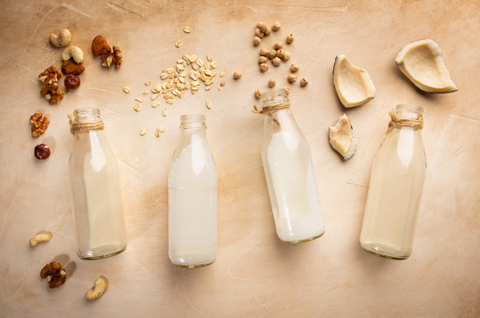Transitioning to a vegan lifestyle is a great way to improve your health and reduce your environmental impact. Although it may seem daunting at first, there are many simple steps you can take to begin transitioning. One of the most important aspects of transitioning to veganism is education. Learning about the benefits of veganism, understanding the nutritional needs of a plant-based diet, and finding animal-friendly products can all be beneficial in helping you make this transition.
Taking small steps toward shifting your diet is possible. By dedicating yourself to learning about veganism, preparing nutrient-filled plant-based meals, and incorporating animal-friendly products into your routine, you’ll eventually find this lifestyle incredibly rewarding.
Over time it comes more naturally as well; many vegans don't even miss their former diets! In this blog post, we will explore the advantages of going vegan and provide step-by-step tips on how to make the switch successfully in a way that works for you. With dedication and wisdom let’s start on our journey together toward embarking on a whole new way of living - one step closer to sustainability!

Benefits of Going Vegan – Explore the health and environmental benefits of living a vegan lifestyle
Going vegan goes beyond just cutting out animal products from your diet. A vegan lifestyle is a way of living that excludes all forms of exploitation and cruelty to animals for food, clothing or any other purpose. As such, this means avoiding not only meat and fish, but also eggs, dairy products, honey, fur, leather and wool.
Adopting a vegetarian lifestyle is the first step towards veganism as it replaces meat with plant-based proteins such as beans, nuts and seeds which provide essential vitamins and minerals required for healthy bodies. Additionally, opting for vegetarian meals can reduce cholesterol levels over time making it an excellent choice for those looking to improve their heart health.
In recent years, more and more people have begun to embrace a vegan lifestyle, and for good reason. Not only does taking the step towards veganism have numerous health benefits, such as a reduced risk of heart disease and certain types of cancer, but it is also a powerful way to make a positive impact on our planet.
By eliminating animal products from our diets, we are reducing the demand for animal agriculture, a major contributor to deforestation, water pollution, and greenhouse gas emissions. Furthermore, veganism encourages a more mindful and conscious way of living, empowering individuals to make ethical and sustainable choices that benefit both themselves and the environment.

How to Make the Transition – Learn some simple tips for making the transition to veganism as smooth as possible
Making the transition to a vegan lifestyle can be daunting, but it doesn't have to be. With some simple tips, you can make the switch as smooth as possible. Firstly, educate yourself on the benefits of veganism and the potential health risks associated with a meat-heavy diet. Knowing the facts will motivate you and help you stick to your new way of life. Secondly, don't make drastic changes overnight. Gradually eliminate animal products from your meals and replace them with plant-based alternatives. This will help you adjust to the new tastes and textures.
You can also start by focusing on incorporating more vegetarian meals into your diet. This will give you time to adjust and familiarize yourself with the vegan lifestyle without feeling overwhelmed. Experiment with different ingredients, recipes and flavors to make sure that you don't get bored or miss out on essential nutrients. Also, make sure to stock up on vegan-friendly pantry staples so that making healthy plant-based meals is easy and convenient. Additionally, reach out to local vegan communities for support and advice. These groups can provide invaluable guidance as you take this journey towards a healthier lifestyle.
Finally, connect with other vegans or join a community to find support, share tips, and learn new recipes. Remember, making the transition is a journey, so be patient and kind to yourself.

Shopping For Vegan Products – Discover where to buy vegan products and explore different brands
When it comes to shopping for vegan products, it can be overwhelming to navigate the endless options available. However, with a little research, you can quickly discover where to buy high-quality vegan products and explore different brands to find your favorites. Many health food stores now offer a wide selection of plant-based products, including vegan meats, cheeses, and snacks. Online retailers also provide convenient access to vegan products, often offering exclusive deals and discounts.
When selecting vegan products, take time to research different brands and compare ingredients so you can make informed decisions about what works best for you. Whether you're a seasoned plant-based pro or a curious newbie, there's never been a better time to explore the world of veganism and discover new products that you love.

Eating Out – Options for Eating Out When You’re Vegan
With the increasing popularity of veganism, many restaurants have begun to cater to plant-based eaters. When you're vegan, going out to eat can initially seem daunting, but there are actually a lot of options available. From vegan-friendly chains like Chipotle to hip and trendy vegan restaurants that specialize in plant-based cuisine, there are plenty of places to choose from.
There are a variety of restaurants that cater to vegans, from fast food chains like Chipotle to more upscale establishments specializing in plant-based cuisine. When eating out, it's important for vegans to pay attention to the ingredients used in their meal so as not to accidentally consume animal products or by-products. Many menus offer vegan alternatives for traditional dishes, such as vegetable stir fry instead of chicken pad thai.
Even non-vegan restaurants have begun to offer vegan options, such as salads, vegetable sides, and pasta dishes. And don't forget about ethnic cuisine! Vegan options are easy to find in Indian, Thai, and Lebanese restaurants, to name just a few. With so many delicious and healthy options available, eating out as a vegan has never been easier.

Overcoming Challenges – Discuss how to stay motivated when transitioning to a vegan lifestyle
Transitioning to a vegan lifestyle can be a challenging endeavor. It takes time, patience, and dedication to learn about plant-based nutrition and find satisfying alternatives to animal-based products. As you navigate this new way of life, it's important to stay motivated and remember why you made the decision to go vegan in the first place.
It's important to remember why you chose to transition to a vegan lifestyle. Whether it was for health benefits, environmental concerns, or animal welfare issues, holding onto this motivation will help you stay on track and make the transition easier. Creating a plan can be useful in helping you stay focused and organized. Start by researching vegan recipes, choosing healthy, plant-based foods that fit into your lifestyle and budget. Make sure to stock your kitchen with ample vegan staples like legumes, grains, nuts, seeds, fruits and vegetables so that you have nutritious options available when cravings arise.
Another technique that can help is to surround yourself with like-minded individuals who share your values and goals. Joining a vegan support group or following influencers on social media can provide a sense of community and inspiration. Additionally, educate yourself on the benefits of a vegan lifestyle, including improved health, a reduced carbon footprint, and decreased animal suffering. By focusing on the positive impact of your choices, you can maintain your drive and enthusiasm as you overcome the challenges of this rewarding transition.
Bonus: if you are ever struggling with feeling unmotivated or discouraged during this transition period, take time for yourself by engaging in activities like yoga, meditation, or a nature walk. These can help to clear your mind and bring you back to the bigger picture of why you chose to go vegan in the first place.

Recipes To Try – Share delicious vegan recipes you can easily make at home
There's never been a better time to explore the world of vegan cuisine. With an abundance of fresh produce and creative plant-based ingredients, there are countless delicious and healthy recipes waiting to be discovered. Whether you're a seasoned vegan or just looking to experiment with new flavors, there are plenty of options to choose from. From savory lentil soups to hearty vegetable stews, there's no shortage of delicious vegan recipes to try at home. So why not add a little flavor to your life and explore the exciting world of plant-based cooking?
In conclusion, veganism has many benefits for both your health and the environment. Making the transition does not have to be difficult or intimidating; with the right know-how and resources, it can be a beautiful lifestyle that celebrates compassion and wellness. Shopping for vegan products has become easier than ever before thanks to online marketplaces and the increasing availability of vegan brands; restaurants are also jumping on board the trend. And even better, you don't have to give up delicious meals – vegan cooking is full of exciting possibilities and recipes you may have never thought possible. While there will undoubtedly be challenges as you transition, remember that every step forward is a point of progress worth celebrating.
Good luck! Enjoy the journey of transitioning to a vegan lifestyle and all it has to offer.
Frequently Asked Questions
Will switching to a vegan diet help me lose weight?
Vegan diets with high nutritional values include whole foods and low processed foods which can help reduce fats. Vegan diets tend to reduce calorie consumption without restricting the consumption. In terms of calorie consumption, vegan diet is unable to lose fat as compared with other weight loss strategies.
What is the difference between plant-based and vegan?
Plant-based” is increasingly using the term vegetarian in food advertising. What is the difference between them? Nope. A plant-based diet includes mostly plants, but a vegan diet totally eliminates animal food. While “plant-based” may contain ingredients such as meat, eggs, dairy and milk, it is considered vegetarian because it contains all animal ingredients and no animal product. Veganism is also a lifestyle, which will likely extend into other areas of life such as the absence of clothing and footwear made from animals. Canvas.
What is the definition of a vegan?
Vegan people are the people who never consume animal meat and are not allowed to eat meat. The Therapeuta were among the ancient Jewish sect that banned all animal food, and the philosopher and poet Ab al-Maarr (973–1057) prohibited animal food and wrote a “docile letter to the gods”. The vegan word was never developed until 1944 when six Vegan Society members gathered in England.
What are the health benefits of being vegan?
Currently, some people go vegan for health. In fact, the American Academy of Nutrition and Dietetics and the UK dietetic association agree with this. In particular, vegan foods rich in all natural products are helpful in a number of ways.
Vegans tend to eat a lot of soy. Is this bad for you?
Soybean contains a good amount of plant proteins. It contains an array of nutrients, vitamins, antioxidants, and phytonutrients, and has various health benefits, including a number of health benefits. But soy may inhibit thyroid gland function in predators and cause diarrhea in others. Ideally, the company'll use minimally refined soy foods like soy tofu or edamame, and limit soy-based mock meat consumption.
How can I replace eggs in recipes?
Chia and flax are excellent substitutes for eggs. For replacing eggs, use 1-2 cups of hot water with 3 tablespoons of ground flax seeds and let it cool until a gelling occurs. Mashed bananas are sometimes a good substitute for egg products. Scrambled tofu is the healthy vegan option for scrambled eggs. Tofu may serve as an alternative ingredient in various eggs based recipes, ranging from omelets to frittatas.
How can I make sure I get enough protein?
Vegans should include plant food as part of their diet to help them satisfy their daily protein needs. Please see this article to learn how the best proteins are obtained by plants.






Comments (0)
There are no comments for this article. Be the first one to leave a message!